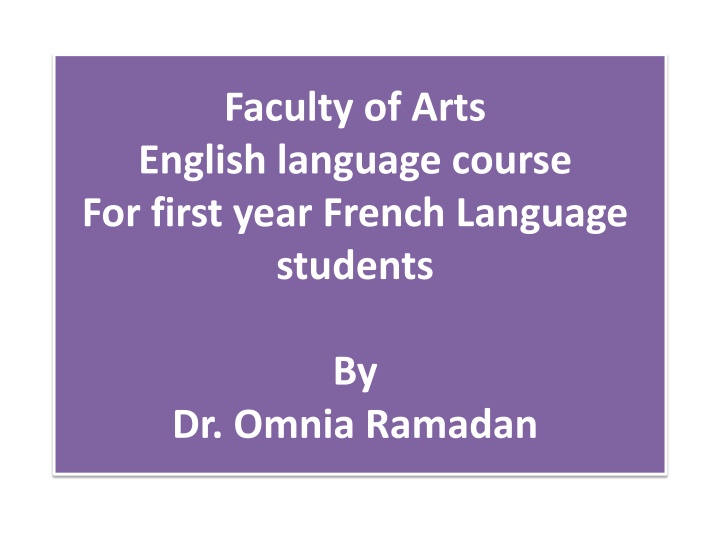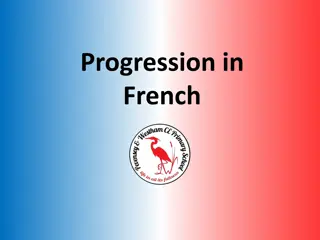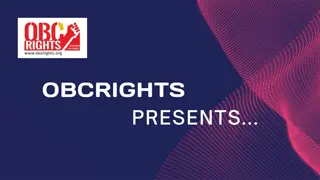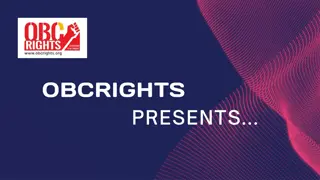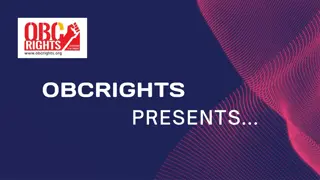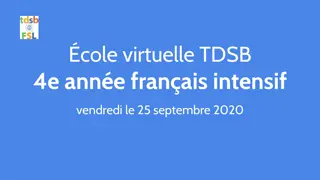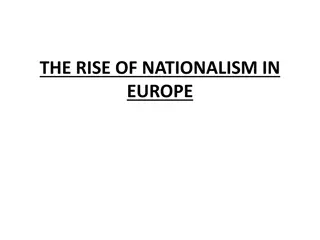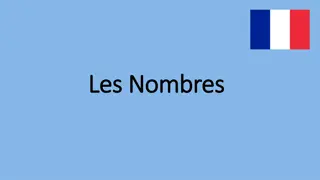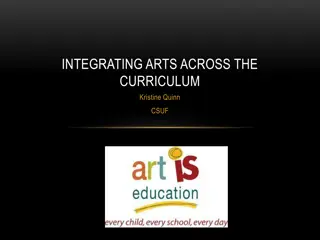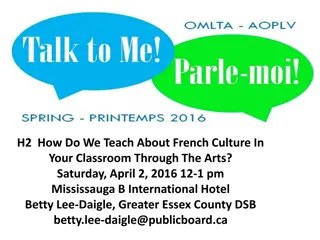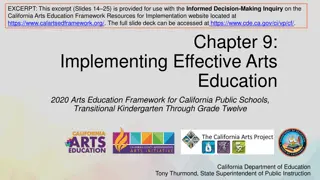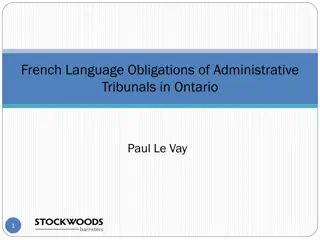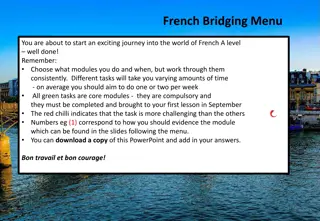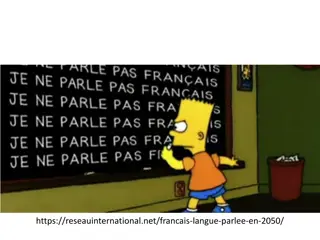First Year French Language Course for Arts Students
Join Dr. Omnia Ramadan in the Faculty of Arts for an English language course tailored specifically for first-year French language students. Enhance your linguistic skills and cultural understanding with this specialized program designed to support your academic journey.
Download Presentation

Please find below an Image/Link to download the presentation.
The content on the website is provided AS IS for your information and personal use only. It may not be sold, licensed, or shared on other websites without obtaining consent from the author.If you encounter any issues during the download, it is possible that the publisher has removed the file from their server.
You are allowed to download the files provided on this website for personal or commercial use, subject to the condition that they are used lawfully. All files are the property of their respective owners.
The content on the website is provided AS IS for your information and personal use only. It may not be sold, licensed, or shared on other websites without obtaining consent from the author.
E N D
Presentation Transcript
Faculty of Arts English language course For first year French Language students By Dr. Omnia Ramadan
Modal verbs Could have, should have, would have These hypothetically, to talk about things that didn't really happen in the past. past modal verbs are all used
Could have + past participle means that. something was possible in the past or you had the ability to do something in the past but that you didn't do it. For example, I could have stayed up late, but I decided to go to bed early. They could have won the race, but they didn't try hard enough.
Could have + past participle is used also to make a guess about something that happened in the past. In this case, we don't know if what we're saying is true or not true. We're just talking about our opinion of what maybe happened. For example, Why is John late? He could have got stuck in traffic. He could have forgotten that we were meeting today. He could have overslept.
Note, We can also choose to use might have + past participle to mean the same thing. For example, He might have got stuck in traffic. He might have forgotten that we were meeting today. He might have overslept.
Couldn't have + past participle means that, something wasn't possible in the past, even if you had wanted to do it. For example, I couldn't have arrived any earlier. There was a terrible traffic jam (= it was impossible for me to have arrived any earlier). He couldn't have passed the exam, even if he had studied harder. It's a really, really difficult exam.
Should have + past participle Means that, something that would have been a good idea, but that you didn't do it. It's like giving advice about the past when you say it to someone else or regretting what you did or didn't do when you're talking about yourself.
Shouldn't have + past participle means that something wasn't a good idea, but you did it anyway. Examples, I should have studied harder! (= I didn't study very hard and so I failed the exam. I'm sorry about this now.) I shouldn't have eaten so much cake! (= I did eat a lot of cake and now I don't feel good.)
Should have + past participle (should have + past participle) is used to talk about something that, if everything is normal and okay, we think has already happened. But we're not certain that everything is fine. It's often used with 'by now'. For example, His plane should have arrived by now (= if everything is fine, the plane has arrived). We can also use this to talk about something that would have happened if everything was fine, but hasn't happened. For example, Lucy should have arrived by now, but she hasn't.
Would have + past participle Part of the third conditional For example, If I had had enough money, I would have bought a car (but I didn't have enough money, so I didn't buy a car).
Would have + past participle to talk about something you wanted to do but didn't. This is very similar to the third conditional, but we don't need an 'if clause'. For example, I would have gone to the party, but I was really busy.(= I wanted to go to the party, but I didn't because I was busy. If I hadn't been so busy, I would have gone to the party.)
